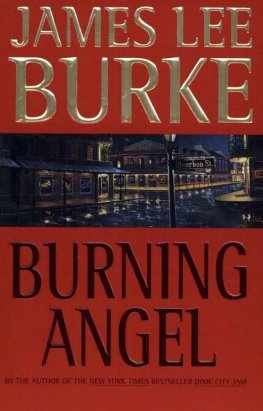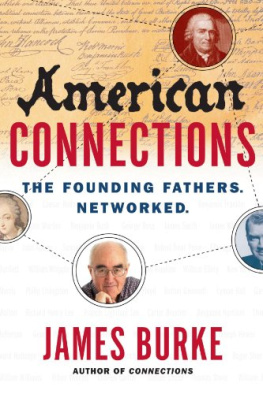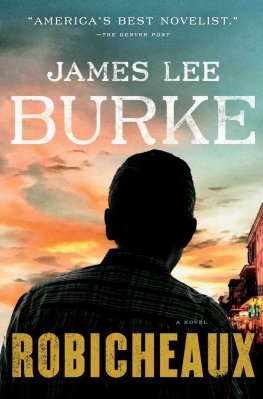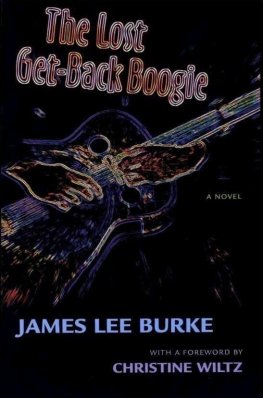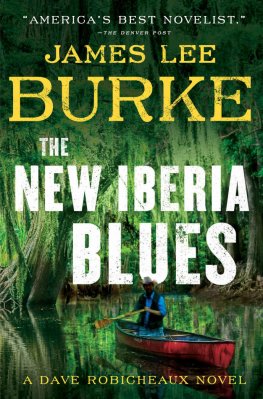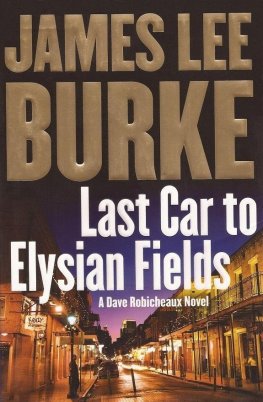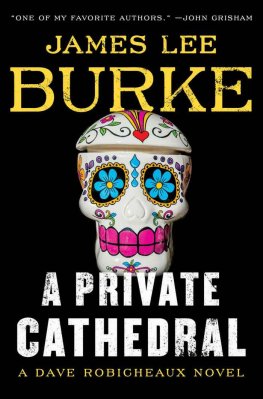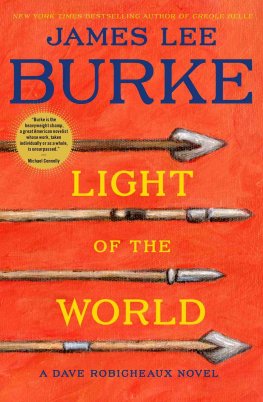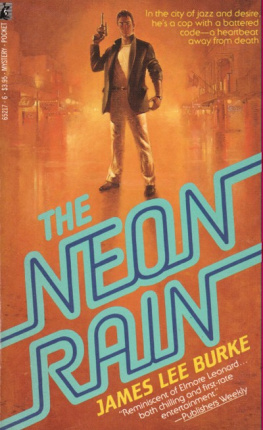
James Lee Burke
The Glass Rainbow
Book 18 in the Robicheaux series, 2010
To my cousins, Alafair Kane, Charlotte Elrod,
Karen McRae, and Mary Murdy
THE ROOM I had rented in an old part of Natchez seemed more reflective of New Orleans than a river town in Mississippi. The ventilated storm shutters were slatted with a pink glow, as soft and filtered and cool in color as the spring sunrise can be in the Garden District, the courtyard outside touched with mist off the river, the pastel walls deep in shadow and stained with lichen above the flower beds, the brick walkways smelling of damp stone and the wild spearmint that grew in green clusters between the bricks. I could see the shadows of banana trees moving on the window screens, the humidity condensing and threading along the fronds like veins in living tissue. I could hear a ships horn blowing somewhere out on the river, a long hooting sound that was absorbed and muted inside the mist, thwarting its own purpose. A wood-bladed fan revolved slowly above my bed, the incandescence of the lightbulbs attached to it reduced to a dim yellow smudge inside frosted-glass shades that were fluted to resemble flowers. The wood floor and the garish wallpaper and the rain spots on the ceiling belonged to another era, one that was outside of time and unheedful of the demands of commerce. Perhaps as a reminder of that fact, the only clock in the room was a round windup mechanism that possessed neither a glass cover nor hands on its face.
There are moments in the Deep South when one wonders if he has not wakened to a sunrise in the spring of 1862. And in that moment, maybe one realizes with a guilty pang that he would not find such an event entirely unwelcome.
At midmorning, inside a pine-wooded depression not far from the Mississippi, I found the man I was looking for. His name was Jimmy Darl Thigpin, and the diminutive or boylike image his name suggested, as with many southern names, was egregiously misleading. He was a gunbull of the old school, the kind of man who was neither good nor bad, in the way that a firearm is neither good nor bad. He was the kind of man whom you treat with discretion and whose private frame of reference you do not probe. In some ways, Jimmy Darl Thigpin was the lawman all of us fear we might one day become.
He sat atop a quarter horse that was at least sixteen hands high, his back erect, a cut-down double-barrel twelve-gauge propped on his thigh, the saddle creaking under his weight. He wore a long-sleeved cotton shirt to protect his arms from mosquitoes, and a beat-up, tall-crown cowboy hat in the apparent belief that he could prevent a return of the skin cancer that had shriveled one side of his face. To my knowledge, in various stages of his forty-year career, he had killed five men, some inside the prison system, some outside, one in an argument over a woman in a bar.
His charges were all black men, each wearing big-stripe green-and-white convict jumpers and baggy pants, some wearing leather-cuffed ankle restraints. They were felling trees, chopping off the limbs for burning, stacking the trunks on a flatbed truck, the heat from the fire so intense it gave off no smoke.
When he saw me park on the road, he dismounted and broke open the breech of his shotgun, cradling it over his left forearm, exposing the two shells in the chambers, effectively disarming his weapon. But in spite of his show of deference for my safety, there was no pleasure in his expression when he shook hands, and his eyes never left his charges.
We appreciate your calling us, Cap, I said. It looks like youre still running a tight ship.
Then I thought about what I had just said. There are instances when the exigencies of your life or profession require that you ingratiate yourself with people who make you uncomfortable, not because of what they are but because you fear their approval and the possibility you are more like them than you are willing to accept. I kept believing that age would one day free me of that burden. But it never has.
My introspection was of no relevance. He seemed uncertain about the purpose of my visit to Mississippi, even though it was he who had contacted me about one of his charges. This is about those hookers that was killed over in your area? he asked.
I wouldnt necessarily call them that.
Youre right, I shouldnt be speaking unkindly of the dead. The boy I was telling you about is over yonder. The one with the gold teeth.
Thanks for your help, Cap.
Maybe my friend the gunbull wasnt all bad, I told myself. But sometimes when you think youre almost home free, that indeed redemption is working incrementally in all of us, you find you have set yourself up for another disappointment.
His nickname is Git-It-and-Go, Thigpin said.
Sir?
Dont be feeling sorry for him. He could steal the stink off shit and not get the smell on his hands. If he dont give you what you want, let me know and Ill slap a knot on his head.
Jimmy Darl Thigpin opened a pouch of string tobacco and filled his jaw with it. He chewed slowly, his eyes hazy with a private thought or perhaps the pleasure the tobacco gave him. Then he realized I was watching him, and he grinned at the corner of his mouth to indicate he and I were members of the same club.
The convicts name was Elmore Latiolais. He came from a rural slum sixty miles northeast of New Iberia, where I was employed as a detective with the Iberia Parish Sheriffs Department. His facial features were Negroid, but his skin was the color of paste, covered with large moles as thick and irregular in shape as drops of mud, his wiry hair peroxided a bright gold. He was one of those recidivists whose lives are a testimony to institutional failure and the fact that for some people and situations there are no solutions.
We sat on a log in the shade, thirty yards from where his crew was working. The air was breathless and superheated inside the clearing, the trash fire red-hot at the center, the freshly cut pine limbs snapping instantly alight when they hit the flames. Elmore Latiolais was sweating heavily, his body wrapped in an odor that was like mildew and soapy water that had dried in his clothes.
Why we got to talk here, man? he said.
Im sorry I didnt bring an air-conditioned office with me, I replied.
They gonna make me for a snitch.
I drove a long way to talk with you, podna. Would you rather I leave?
His eyes searched in space, his alternatives, his agenda, the pitiful issues of his life probably swimming like dots in the heat waves warping off the fire.
My sister was Bernadette, one of them seven girls thats been killed, that dont nobody care about, he said.
Captain Thigpin explained that.
My grandmother sent me the news article. It was from November of last year. My grandmother says aint nothing been written about them since. The article says my sister and all them others was prostitutes.
Not exactly. But yeah, the article suggests that. What are you trying to tell me?
It aint fair.
Not fair?
Thats right. Calling my sister a prostitute. Nobody interested in the troot. All them girls just trown away like they was sacks of garbage. He wiped his nose with the heel of his hand.
You know whos behind their deaths?
Herman Stanga.
What do you base that on?
Herman Stanga tried to have me jooged when I was in Angola.
Herman Stanga is a pimp.
Thats right.
Youre telling me a pimp is mixed up with your sisters death but your sister was not a prostitute? Does that seem like a reasonable conclusion to you?
He turned his face to mine. Where you been, man?
Next page

